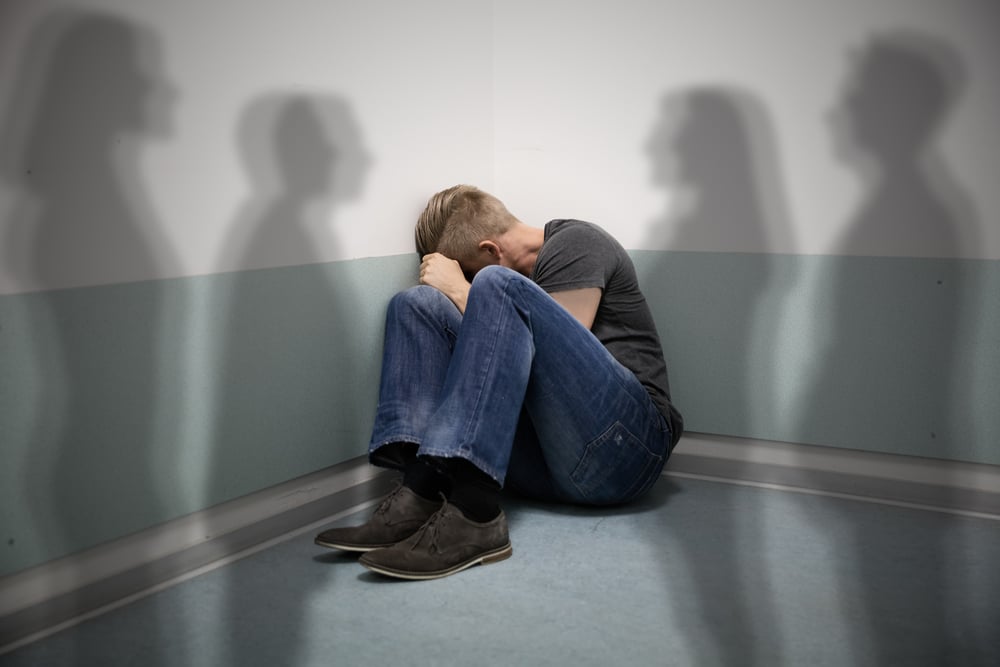Schizophrenia is an imbalance of chemicals in the brain. Symptoms of schizophrenia include hallucinations and delusional thinking. It can be so displacing that its development often leads to addiction. Schizophrenia and addiction may as well go hand in hand since they often engage in substance abuse as a way to self-medicate or alleviate feelings of anxiety and depression. Furthermore, symptoms often mimic those of substance abuse, like unpredictable mood swings or hallucinations.
It is not uncommon for individuals struggling with this mental health disorder to be mistaken for having a substance use disorder. Individuals who battle both disorders face a prognosis known as co-occurring disorders or dual diagnosis. There are schizophrenia rehab centers available that offer advice to new patients and families with this mental health disorder.
To find out your options for treatment you can call us here: 772-774-3872.
What is Schizophrenia?
Schizophrenia is a serious mental illness that causes people to interpret reality from a different perspective. People with schizophrenia have trouble differentiating the imaginary from reality. They often experience auditory hallucinations and distracted thinking that hinder daily activities.
How Does It Develop?
Schizophrenia and other psychotic disorders are believed to affect an estimated two million adults. That makes one percent of all US Americans.
Medical professionals believe schizophrenia is caused by a change in the balance of chemicals in the brain. In the brain, there are chemicals like serotonin, glutamate, and dopamine that help the body function. When there is an imbalance in those chemicals, schizophrenia will likely happen. The imbalances of chemicals affect the way the brain reacts to stimuli. This can lead to symptoms like hypersensitivity and delusions.
Additionally, medical professionals believe genetic and environmental factors play an important part in development. Research shows that schizophrenia develops in 10% of the general population who have a parent or sibling that are impaired by this disorder. It’s also important to consider environmental factors in which a person is raised and how that can take part in the development.
Taking part in a schizophrenia and addiction treatment center will create an opportunity to understand the development of mental disorders and acquire coping skills that can help you deal with your co-occurring disorders.
Signs and Symptoms of Schizophrenia
Early schizophrenia symptoms can appear in puberty-age kids, but most individuals aren’t diagnosed until late teens or early 30s.
Furthermore, schizophrenia symptoms can be similar to those of substance abuse. To tell the difference, pay attention to early warning signs.
Some of those early common schizophrenia symptoms include:
While some of the debilitating symptoms of schizophrenia include:
Cognitive dysfunction is also common for patients with schizophrenia. Cognitive symptoms are moderate to severe, including problems remembering, difficulty speaking, difficulty understanding and problems concentrating.
Addiction and Schizophrenia
There is a strong link between schizophrenia and substance abuse. People may turn to substance use as a way to self-medicate their schizophrenia symptoms. With this, people are more likely to do drugs or abuse alcohol, which can make their schizophrenic symptoms worse and make it harder to manage their condition.
It is important to receive treatment for both their addiction and mental illness.

Can drug abuse cause schizophrenia?
Individuals who develop schizophrenia often succumb to drug abuse as well. Medical professionals believe substance abuse does not cause schizophrenia, but it does act as a trigger.
Environmental triggers can be a major factor in the development of substance abuse; the majority of those who suffer from schizophrenia and addiction experience at least one traumatic event in their lifetime.
Research shows that individuals predisposed are also at risk for substance use. People with schizophrenia may use drugs or alcohol as a way to self-medicate. This self-medication routine can result in addiction schizophrenia, often referred to as a co-occurring disorder.
Some of the typical traits between schizophrenia and substance abuse can include:
An estimated 50 percent of people with schizophrenia have a history of substance use. At a rehab center, they will offer guidance in learning how to cope with both these disorders.
Research has discovered a strong link between alcohol abuse and substance use disorder in schizophrenia patients. On the other hand, two of the less common forms of substance abuse in people with schizophrenia are cocaine and marijuana.
While the relationship is common, it is still not fully understood, and medical professionals still question the link between the two. Schizophrenia rehab centers work to navigate the questionable links between substance abuse and schizophrenia.
Those who have cocaine or cannabis abuse problems — and suffer from this mental health disorder will most likely experience cognitive impairment and a more intense psychosis. Individuals experience a more intense high because of the chemical compounds these drugs are made from.
Living with Nicotine Addiction and Schizophrenia
Nicotine is a challenging addiction to deal with while also suffering from mental disorders like schizophrenia. It can be even more of a challenge if one tries to quit; nicotine has a withdrawal effect and can heighten psychotic symptoms.
Patients with schizophrenia who rely on nicotine have a higher risk for hallucinations, delusional thinking, and disorganized speech.
The use of nicotine is popularized in society with close to thirty percent of the general population participating. For those that suffer from schizophrenia, the number multiplies. With approximately three times the amount of individuals that take part in smoking, careful strategies need to be considered. In rehab centers, a clinical team works to combat this statistic and apply methods such as a nicotine replacement patch.
Rehab centers will distribute antipsychotic medications to help control the symptoms. Despite the help of antipsychotic medication, it will not be effective if the patient is addicted to nicotine. If antipsychotic medication is prescribed, the dosage will likely be higher than the regularly suggested amount.

Why is Schizophrenia and Addiction Similar?
It is mistaken for substance abuse because the disorders have similar symptoms. This can sometimes cause the doctor to misdiagnose or cause them to consider the likelihood of co-occurring disorders. Nevertheless, rehab centers provide the medical attention necessary to diagnose the patient correctly.
Regarding this mental health disorder, there is something referred to as “negative symptoms” when associating schizophrenia with substance abuse. These negative symptoms are usually present years before an individual suffers their first episode.
To look out for family and friends and to be aware, you can search for negative symptoms such as:
Negative symptoms are associated with people with schizophrenia, but usually get mistaken for other mental health issues, such as depression.
These negative symptoms result from the inability to function normally; it causes changes to thought patterns and perceptions. Drug-induced psychosis is similar as it causes one to think inaccurately and causes reality to be distorted.
Treatment Options
If an individual suffers they should seek medical attention at a rehab center. There, medical professionals are assigned to treat both diagnoses and provide the vital attention needed.
Individuals who suffer from co-occurring substance use disorders, and addiction, will find the recovery process difficult. Most people do not seek treatment for alcohol and drug addiction. Therefore, the best option for treatment would be an integrated approach.
Once an individual is evaluated and given a dual diagnosis, they will enter a detoxification process. This process rids the body of toxins and helps assure the therapists that psychotic symptoms aren’t just a side effect of addiction.
If medical professionals at the rehab center diagnose the patient with schizophrenia, antipsychotic medications are normally prescribed. This medication will attempt to control symptoms and alter the chemicals in the brain. These chemicals— serotonin, glutamate, and dopamine— have the effect of changing your behavior, mood, and emotions. It’s thought that antipsychotic medication has the most effect on the dopamine chemical of the brain, the chemical messenger.
Besides antipsychotic drugs, in-patient rehab is another approach.
Get Help Today
Dual diagnosis patients are at further risk for suicidal thoughts and homelessness. These individuals are also at risk for legal troubles and incarceration as their erratic behavior leaves some people questioning their safety. In rehab centers, medical professionals aim to counter these statistics and reverse the stereotype of individuals with mental health disorders through proper dual diagnosis treatment.
If you or a loved one are suffering from addiction or schizophrenia contact us at Behavioral Health Centers for a guide to better help today.






